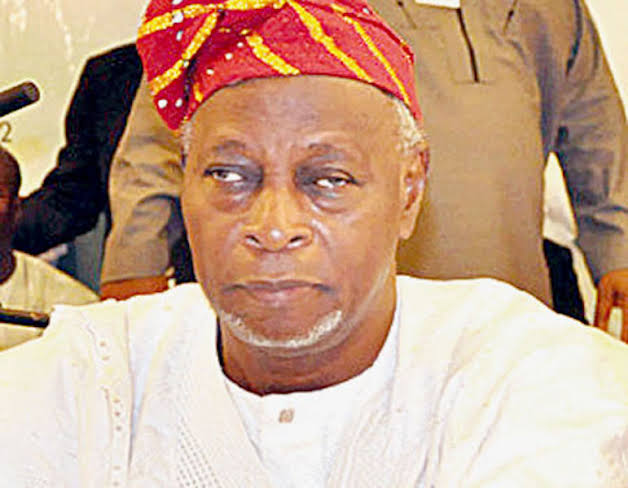
Chief Olu Falae, a former Secretary to the Government of the Federation and the 1999 presidential candidate, has claimed he was the true winner of the election that marked Nigeria's return to civilian rule—not Olusegun Obasanjo.
Speaking on Arise TV’s Morning Show during a special Democracy Day broadcast on Thursday, Falae alleged that the 1999 presidential election results were manipulated, robbing him of his rightful mandate.
According to the elder statesman, a legal review of the vote tallies conducted by his late counsel, Chief J.O.K. Ajayi, revealed that he actually defeated Obasanjo of the Peoples Democratic Party by over one million votes.
“I was told by my lawyer, the late Chief JOK Ajayi, that I won the election by over a million votes after a meticulous assessment of the figures declared.
“But we decided not to go to court. We were more concerned about the country returning to democracy peacefully after years of military rule,” Falae said during the interview.
Falae’s revelation reopened an old political wound from Nigeria’s transitional period following the death of General Sani Abacha and the eventual assumption of office by General Abdulsalami Abubakar, who oversaw the transition to democratic governance.
The 1999 elections were widely regarded as a political compromise—an attempt to soothe tensions, especially in the South-West, after the annulment of the June 12, 1993, election won by MKO Abiola.
Chief Olu Falae’s 1999 presidential run, endorsed by two major opposition parties—the Alliance for Democracy (AD) and the All Peoples Party (APP)—was perceived as a conciliatory gesture to the Yoruba people. Meanwhile, former military Head of State Olusegun Obasanjo, also a Yoruba, emerged as the candidate of the Peoples Democratic Party (PDP), enjoying strong support from the political and military establishment.
“There was so much pressure not to rock the boat.
“We made sacrifices for democracy to return. I accepted it in good faith then, but the truth must be told: I won that election,” Falae told his interviewers.
“It’s not about me. It’s about the truth. Nigeria deserves to know the real story behind its so-called democratic rebirth,” he added.
Falaye regretted that since 1993, Nigeria has not had a credible election, noting that although democracy has been sustained till 1999, the conduct of elections remains a challenge.








